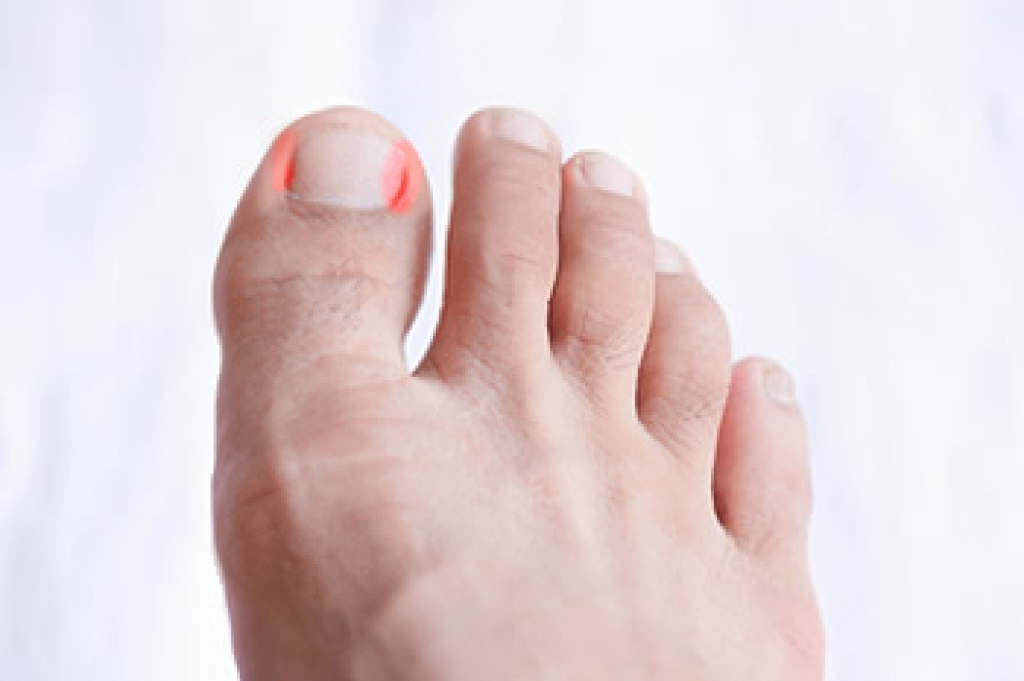Ingrown toenails (when the nail grows into the surrounding skin) are a very common malady that podiatrists treat, as oftentimes the toenail becomes very painful, inflamed, or even infected. You can help prevent ingrown toenails from developing by avoiding shoes that are too tight and trimming your nails straight across—and not too short. There are a couple of home remedies you can try to get relief from an ingrown toenail, such as soaking the toe in warm water mixed with either Epsom salts, apple cider vinegar, or a mild soap. Also, try applying an antibiotic cream to the nail several times a day and keeping it wrapped in a bandage to help reduce the chances of an infection developing. Wear comfortable, non-restrictive shoes that give the toes plenty of room. You can even try using an over-the-counter toe protector, which is a padded ring that cushions the toe and prevents it from rubbing against other toes or footwear. If your ingrown toenail becomes a chronic issue, the pain worsens, or you see signs of an infection, contact a podiatrist for more advanced treatment options.
Ingrown toenails may initially present themselves as a minor discomfort, but they may progress into an infection in the skin without proper treatment. For more information about ingrown toenails, contact one of our podiatrists of Lexington Foot and Ankle Center, PSC. Our doctors can provide the care you need to keep you pain-free and on your feet.
Ingrown Toenails
Ingrown toenails are caused when the corner or side of a toenail grows into the soft flesh surrounding it. They often result in redness, swelling, pain, and in some cases, infection. This condition typically affects the big toe and may recur if it is not treated properly.
Causes
- Improper toenail trimming
- Genetics
- Improper shoe fitting
- Injury from pedicures or nail picking
- Abnormal gait
- Poor hygiene
You are more likely to develop an ingrown toenail if you are obese, have diabetes, arthritis, or have any fungal infection in your nails. Additionally, people who have foot or toe deformities are at a higher risk of developing an ingrown toenail.
Symptoms
Some symptoms of ingrown toenails are redness, swelling, and pain. In rare cases, there may be a yellowish drainage coming from the nail.
Treatment
Ignoring an ingrown toenail can have serious complications. Infections of the nail border can progress to a deeper soft-tissue infection, which can then turn into a bone infection. You should always speak with your podiatrist if you suspect you have an ingrown toenail, especially if you have diabetes or poor circulation.
If you have any questions, please feel free to contact our offices located in Harrodsburg, Frankfort, Georgetown, and Lexington, KY . We offer the newest diagnostic and treatment technologies for all your foot care needs.
